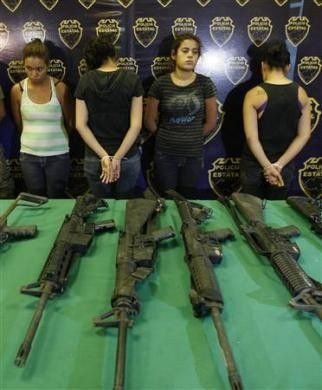Mexican Gun Tracking Program Involved FBI Agents, ATF Director Says

The head of the Bureau of Alcohol, Tobacco, Firearms and Explosives sought to redirect blame as Congress probed an operation that intentionally allowed drug cartels in Mexico to obtain firearms.
Known as Operation Fast and Furious, the program was meant to allow ATF agents to track weapons people bought in the U.S. and delivered to Mexican drug traffickers, but it spun out of control when the agency lost track of guns, some of which turned up at crime scenes. ATF Acting Director Kenneth Melson told lawmakers that the Federal Bureau of Investigation the Drug Enforcement Administration were invloved in the operation without his knowledge.
According to Mr. Melson, it was not until after the public controversy that he personally reviewed hundreds of documents relating to the case, an account of Melson's testimony to Congress said in a letter to Attorney General Eric Holder. By his account, he was sick to his stomach when he obtained those documents and learned the full story.
A source close to the investigation told The San Francisco Chronicle that the probe has expanded in light of revelations that Fast and Furious spanned multiple agencies and was not something limited to just a small group of ATF agents in Arizona. Melson said that he was unaware some members of cartels were paid informants.
This whole misguided operation might have been cut short if not for catastrophic failures to share key information, the letter to Holder said. The letter went on to underscore the disturbing possibility that the Justice Department not only allowed criminals to smuggle weapons but that taxpayer dollars from other agencies may have financed those engaging in such activities.
© Copyright IBTimes 2024. All rights reserved.





















